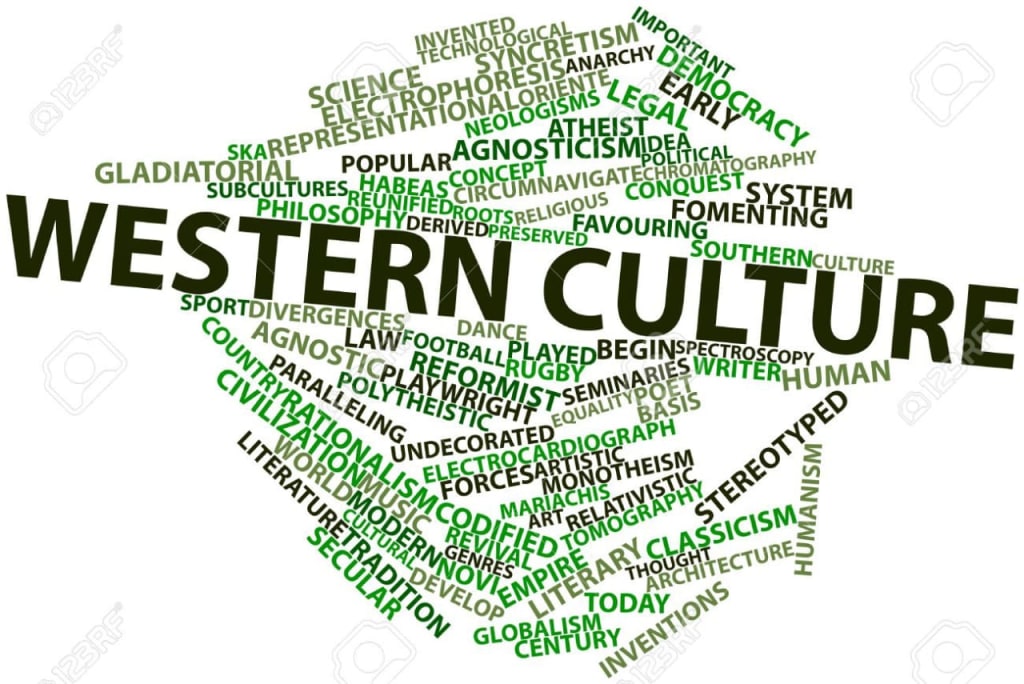
Introduction:
Western culture, also known as Western civilization, encompasses a broad range of traditions, values, and influences that have shaped the societies of Europe, North America, Australia, and other regions heavily influenced by European colonization. With its roots in ancient Greece and Rome, Western culture has evolved over centuries, blending various cultural, artistic, and philosophical elements to create a distinctive and diverse tapestry. This article explores the key aspects and contributions of Western culture, highlighting its impact on global society.
Historical Development:
The foundations of Western culture can be traced back to the ancient civilizations of Greece and Rome. The Greeks laid the groundwork for democracy, philosophy, and scientific inquiry, while the Romans contributed to law, governance, and engineering. The Middle Ages witnessed the rise of Christianity, which profoundly influenced Western culture through its moral, artistic, and intellectual traditions. The Renaissance marked a period of immense cultural flourishing, with innovations in art, literature, and science, followed by the Enlightenment that emphasized reason, individualism, and human rights.
Judeo-Christian Heritage:
Western culture has been significantly influenced by the Judeo-Christian tradition. The Hebrew Bible (Old Testament) and the teachings of Jesus Christ (New Testament) have shaped Western moral and ethical values, emphasizing concepts such as justice, compassion, and the inherent worth of every individual. These religious beliefs have played a crucial role in shaping legal systems, governance, and social norms across Western societies.
Art and Literature:
Western culture boasts a rich artistic and literary heritage that has had a profound impact on global art movements. From ancient Greek sculptures and Roman architecture to Renaissance paintings and modernist literature, Western artists and writers have explored diverse themes and styles, pushing the boundaries of creativity. Iconic figures such as Leonardo da Vinci, William Shakespeare, Vincent van Gogh, and Pablo Picasso have left an indelible mark on Western cultural identity.
Scientific and Technological Advancements:
Western culture has witnessed remarkable scientific and technological advancements that have transformed the world. The Scientific Revolution of the 16th and 17th centuries, spearheaded by figures like Copernicus, Galileo, and Newton, laid the groundwork for modern scientific inquiry and empirical reasoning. Western societies have been at the forefront of groundbreaking discoveries in fields such as physics, medicine, genetics, and computer science.
Democratic Ideals and Political Systems:
The principles of democracy, individual freedom, and human rights form a cornerstone of Western culture. Ancient Greek city-states introduced the concept of democracy, and it was revived during the Enlightenment. Western societies have since developed democratic systems of governance, emphasizing the rule of law, representative institutions, and civil liberties. These values have influenced political systems worldwide and continue to shape discussions on human rights and governance.
Global Influence:
As a result of colonization and globalization, Western culture has spread across the globe, leaving an indelible impact on various regions and societies. The English language has become a lingua franca, Western popular culture permeates global media, and Western education systems are adopted in many countries. However, this influence has also sparked debates on cultural imperialism and the preservation of local traditions. Intellectual and Scientific Advancements:
Western culture has been a cradle of intellectual and scientific advancements throughout history. The philosophical traditions of ancient Greece, coupled with the scientific discoveries of the Renaissance and Enlightenment periods, laid the foundation for the modern scientific method. Western scholars and thinkers have made groundbreaking contributions in fields such as physics, biology, medicine, mathematics, and technology, leading to advancements that have improved human life and expanded our understanding of the universe.
Promotion of Democratic Values:
Western culture has played a pivotal role in the development and promotion of democratic ideals. Concepts of individual freedoms, human rights, and the rule of law emerged from Western philosophical and political traditions. The establishment of democratic governance systems in many Western countries has inspired movements and influenced political systems worldwide, fostering the belief in participatory decision-making, equality, and protection of individual liberties.
Cultural and Artistic Legacy:
The artistic and cultural legacy of Western civilization is unparalleled. From ancient Greek sculptures and Roman architecture to Renaissance paintings, classical music, and modern literature, Western culture has produced masterpieces that have captivated audiences across generations. The works of Western artists, writers, and musicians have not only enriched the cultural landscape but have also provided a platform for diverse perspectives and expressions of human creativity.
Economic and Technological Progress:
The advancements in Western culture have had a profound impact on global economic and technological progress. The Industrial Revolution, which originated in Western countries, transformed societies by introducing mass production, steam power, and mechanization. Western innovations in technology, such as the development of the internet, computer science, and artificial intelligence, have revolutionized communication, transportation, healthcare, and countless other industries, leading to improved living standards and increased interconnectedness.
Globalization and Exchange of Ideas:
The spread of Western culture and ideas through globalization has facilitated the exchange of knowledge, fostering cross-cultural understanding and collaboration. Western educational systems and institutions have become models for educational excellence worldwide, attracting students from diverse backgrounds. The English language, which has become a global lingua franca, enables communication and facilitates the sharing of information, ideas, and innovations across borders.
Conclusion:
Western culture is a multifaceted tapestry of traditions, values, and influences that have evolved over centuries. From its ancient Greek and Roman roots to its contributions in art, literature, science, and governance, Western culture has shaped societies worldwide. While its global influence is undeniable, it is important to appreciate the diversity of cultures and promote a dialogue that embraces the richness of both Western and non-Western traditions.





Comments
There are no comments for this story
Be the first to respond and start the conversation.